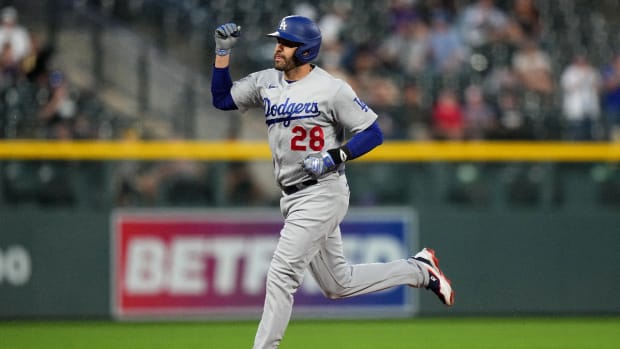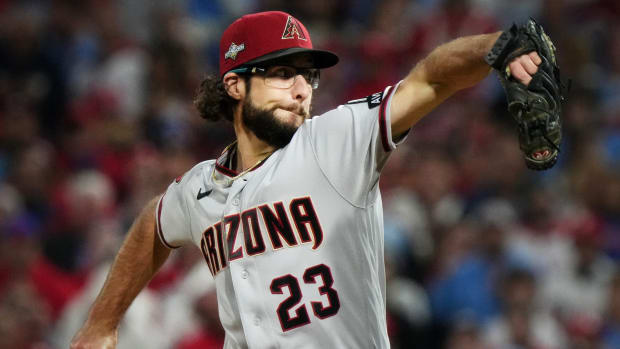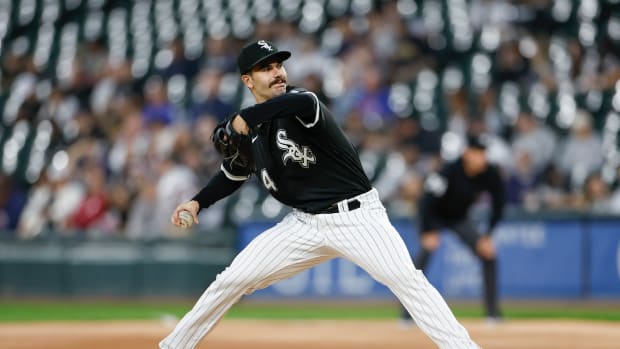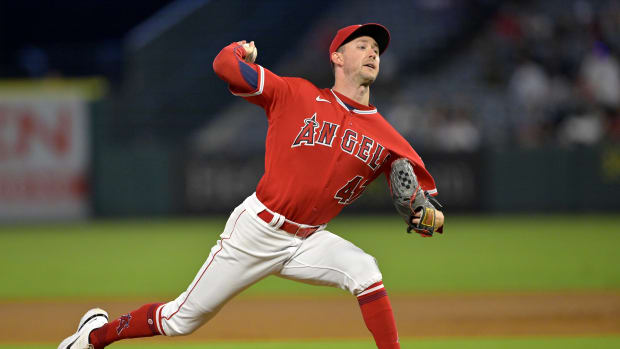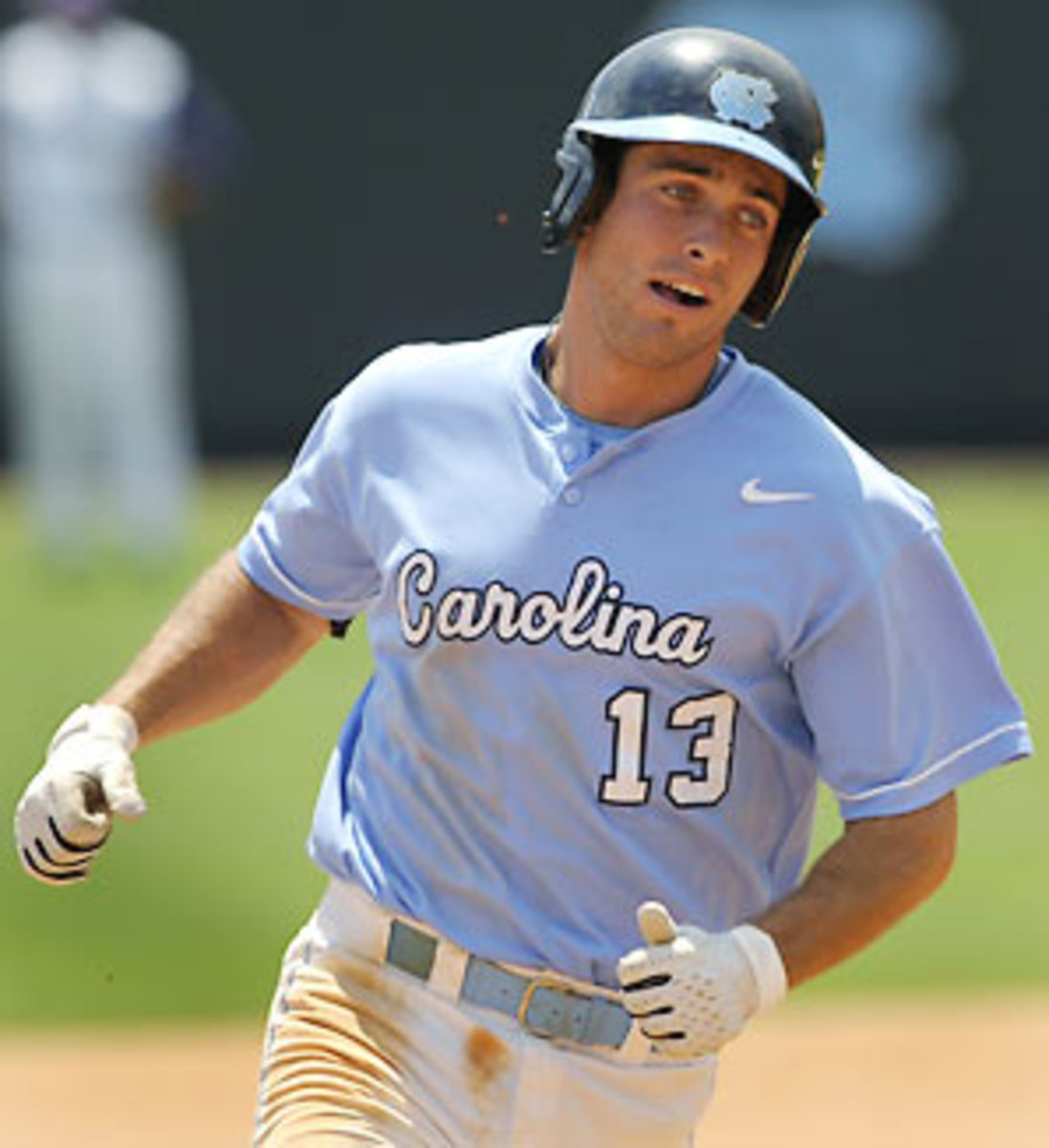
Draft deadline winners and losers
The last three years, Major League Baseball has implemented a signing deadline, ending the interminable holdouts that often plagued baseball's draft process. The draft still has plenty of problems, but that's another story. This draft is essentially in the books now that Monday's deadline has passed, with two fourth-year pitchers -- indy leaguers Aaron Crow (Royals first-rounder) and Tanner Scheppers (Rangers supplemental first-rounder) still unsigned but not subject to the deadline.
Everyone else's fate is known. And while it should take at least three years to truly judge a draft class, here's an informed, if knee-jerk, reaction to the winners and losers when the dust settled after midnight.
Washington Nationals: The Nats did what they had to do, signing No. 1 overall pick Stephen Strasburg. They got him done at a good price, a major league deal with a $7.5 million bonus (a record) and a total guarantee of $15.1 million (also a record). They gave him more money than any drafted player ever has received, yet they also didn't go too crazy, falling well short of agent Scott Boras' reported $50 million asking price. Signing Strasburg should be the moment when we look back in history and say, "Oh, that's when the Nationals started to matter."
Scott Boras Corp: OK, so Strasburg didn't get $50 million. He still set records for the largest bonus and largest contract in draft history. Boras Corp. also got all but one of its first-rounders signed, and not just signed but signed to big-money deals. No. 2 pick Dustin Ackley got a $6 million bonus and is guaranteed $7.5 million; prep right-hander Jacob Turner got a $4.7 million bonus and a total value that could reach nearly $7 million. Even with Rays first-rounder LeVon Washington and Jays supplemental first-rounder James Paxton failing to sign, it was another lucrative draft season for the Boras Corp.
Kansas City Royals: The best way for a lower-revenue franchise to acquire impact talent is through scouting and player development. The Royals have consistently been big draft spenders under general manager Dayton Moore and did it again in 2009. While Crow has yet to sign, the Royals have the leverage in those negotiations, and they also hedged their bets with first-round caliber talents in catcher/outfielder Will Myers ($2 million in the third round) and left-hander Chris Dwyer ($1.45 million in the fourth).
Colorado Rockies: With a roster full of homegrown talent chasing down a playoff spot, the Rockies know how to use the draft and the scouting/player development approach to compete at the major league level. They took the dare on high school lefty Tyler Matzek, the draft's No. 3 talent, drafting him at No. 11 overall and then signing him for less than $4 million. Matzek caps a strong draft class that also includes power lefty Rex Brothers (supplemental first round) and toolsy outfielder Tim Wheeler (last pick of the first round). The Rockies signed all their picks through Round 28.
Baltimore Orioles: The O's also are rebuilding their organization via the draft. This year, instead of investing most of their draft budget in one player (such as Matt Wieters or Brian Matusz), the Orioles spread their money throughout their draft class. First-rounder Matt Hobgood got $2.422 million at No. 5 overall, but then Baltimore loaded up. Second-round shortstop Mychal Givens got $800,000, after it seemed negotiations had broken down. The O's then lavished near-million dollar bonuses on 11th-rounder Michael Ohlman ($995,000), a power-hitting prep catcher from Florida, and hard-throwing left-hander Cameron Coffey ($990,000), a 22nd-round pick. Ravens fans will also like their signing of 31st-round pick Mike Flacco, brother of Ravens QB Joe Flacco.
Detroit Tigers: When the Tigers are aggressive in the draft, it pays dividends -- see Justin Verlander (2004), Rick Porcello (2007) and Andrew Miller (2006) and Cameron Maybin (2005), who were packaged in the Miguel Cabrera trade. Again Detroit went after who it wanted and spent what it took, getting Jacob Turner and left-hander Andy Oliver ($1.495 million) to add a pair of potent power arms to its farm system. They also spent more than $1.6 million to land shortstop Daniel Fields, the top prep player in Michigan and the son of ex-big leaguer Bruce Fields, currently the Indians' minor league hitting coordinator.
LeVon Washington: The Gainesville, Fla., product had a bad day Monday. First, he did not become an instant millionaire, as he and the Rays didn't agree to terms. It's the first time the Rays failed to sign their first-round pick. Then a report on a Florida Gators fan Web site reported that Washington has not qualified academically to go to Florida. If that report proves to be true, Washington will have had truly a rough day. However, he can recover by going to junior college and joining a 2010 draft class that appears to be light on college hitters.
Texas Rangers: Most things have gone right for the Rangers since the Mark Teixeira trade in 2007. They've built the game's preeminent farm system and used young talent to take the American League wild-card lead. For once, things didn't go according to Texas' plan. The Rangers failed to sign first-rounder Matt Purke, who spurned reported offers of up to $4 million to attend Texas Christian. Purke is old enough that he'll be draft-eligible as a sophomore in 2011, and if he has two strong seasons he could well earn more. The Rangers missed a chance to add a local power arm, plus they didn't sign their ninth- or 10th-round picks. Also, Tanner Scheppers remains unsigned. But again, most of the other news in the Metroplex has been quite good of late.
Tampa Bay Rays: The Rays have a strict budget. This point was hammered home at the trade deadline, when the Rays were essentially inert, and now again at the draft deadline, when the Rays failed to sign their top two draft picks. First-rounder Washington should have gotten done; he's a quintessential Rays pick, a premium athlete and plus runner who also can hit. Second-rounder Kenny Diekroeger always was considered a tough sign as a Stanford commitment; now the Rays will have two extra picks to pay for in 2010.
Toronto Blue Jays:J.P. Ricciardi & Co. signed first-rounder Chad Jenkins, but not two Canadian left-handers -- supplemental first-rounder James Paxton, who returned to Kentucky, and second-rounder Jake Eliopoulos, Canada's top prep player available. Third-rounder Jake Barrett, a prep right-hander from Arizona, also didn't sign, but Toronto got its second third-rounder, prep outfielder Jake Marisnick, done for $1 million. Erratic juco pitcher Daniel Webb ($450,000) and prep outfielder K.C. Hobson (son of Butch, signed for $500,000) become key parts of this draft class.
New York Mets: While the crosstown Yankees spend money like nobody's business in the draft, the Mets toe the line. Sure, they paid top pick Steve Matz an above-slot bonus, as he got $895,000, almost $400,000 more than the recommended slot. That's a Mets rarity, and with no first-rounder (lost for signing free agent Francisco Rodriguez), Matz basically got a first-round bonus. The Mets failed to sign their fifth- and sixth-rounders, and only had two players -- Matz and 13th-round pick Zach Dotson, a Georgia prep lefty signed for $500,000 -- who signed for as much as the Yankees gave their 44th-round pick. No large-revenue team uses its money less in the draft than the Mets.































